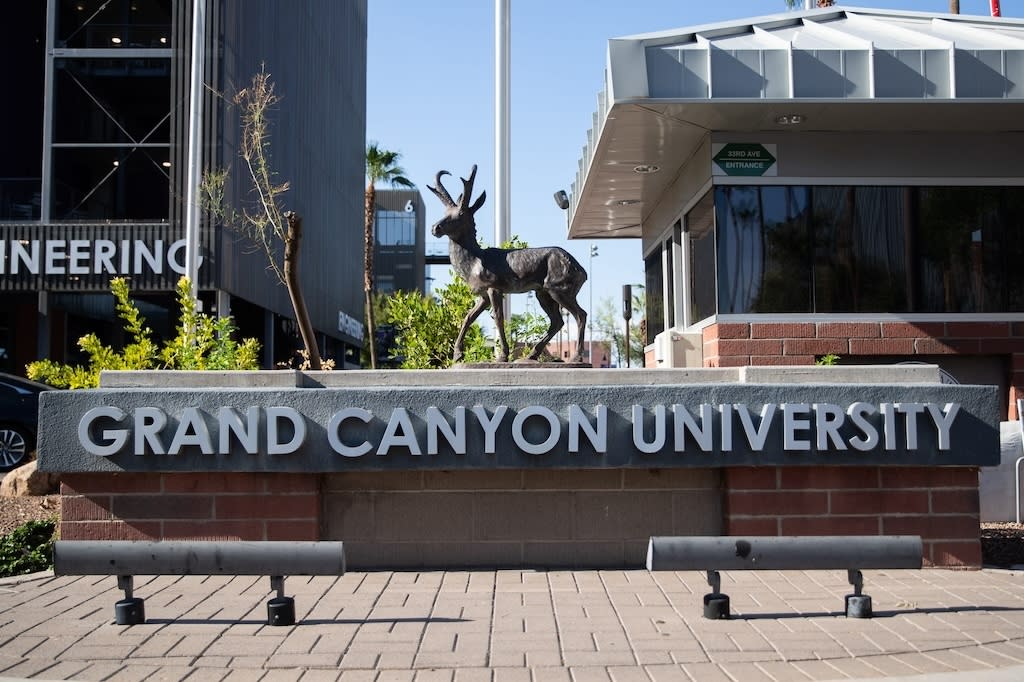The scandal surrounding the country's largest for-profit college

The country's largest for-profit college has found itself embroiled in a major scandal, and has just been hit with a record financial penalty from the federal government as a result. Grand Canyon University (GCU), a Phoenix-based college, was fined $37.7 million by the U.S. Department of Education on Oct. 31.
GCU is accused of misrepresenting the costs of its doctoral programs over several years. The college allegedly advertised "a lower cost than what 98% of students ended up paying to complete certain doctoral programs," the Education Department said in a press release. "Today, we are holding GCU accountable for its actions, protecting students and taxpayers, and upholding the integrity of the federal student aid programs."
GCU's 100,000 enrolled students — the majority of whom attend online — make it the largest for-profit college in the United States, according to NBC News. This also makes GCU the country's largest Christian university. Officials at the university have pushed back against the federal government's allegations, but the fine could have major ramifications across the school regardless.
What exactly is Grand Canyon University accused of?
The Education Department said GCU advertised its doctoral programs as costing anywhere from $40,000 to $49,000, but based on the university's own data, "less than 2% of graduates completed within the cost that GCU advertised." As a result of "continuation courses" required to complete their degrees, at least 98% of doctoral students at GCU ended up paying many times the amount advertised, the Education Department alleged. The investigation involved about 7,500 students enrolled at GCU between 2017 and 2022.
Of the 98% of students whose degrees ended up costing extra, more than three-quarters of them "had to pay $10,000 to $12,000 more in tuition costs — roughly a 25% increase, depending on the program — than GCU explicitly advertised," the Education Department charged. While GCU does offer a series of fine-print disclosures about the cost of their doctoral programs, they "fail to address or correct the significant misrepresentations about the cost of the program," the feds argued, adding that the disclosures "do not cure the 'net impression' that the program will be less expensive than it actually is."
How has the school responded?
GCU has denied any wrongdoing and made a number of attempts to push back against the government's characterization of its doctoral programs. The Education Department noted, though, that the college didn't dispute the government's determination that "98% of students enrolled in certain doctoral programs had to pay more than GCU's advertised cost."
Weeks before it was slapped with its record fine, GCU released a statement claiming that the government was "coordinating efforts to unjustly target GCU." The university alleged that the investigation into its tuition was retaliation for a lawsuit GCU had filed against the Education Department in 2021 as part of its attempts to regain its nonprofit status; federal officials maintain that these issues are "entirely unrelated," and that GCU's loss of its nonprofit status had nothing to do with the fine.
GCU President Brian Mueller also criticized the Education Department's investigation prior to the fine, arguing that his university actually provides more financial disclosure than is legally required, according to The Arizona Republic. Mueller also said GCU's financial disclosures have previously been upheld in court.
What happens next?
The Education Department has given GCU 20 days to file an appeal of its fine, which the school has said it intends to do.
In addition to the fine, the Education Department is imposing five new conditions on GCU to ensure it abides by these federal rules. First, the college shall not make "substantial misrepresentations related to the cost of obtaining a degree in its doctoral programs." And if GCU does inform someone about the cost of its doctoral programs, it must also tell them "the average total tuition and fees paid by graduates."
Officials at GCU have said they intend to fight the Education Department's fine for as long as it takes. Officials are also "continuing to encourage staff and other affiliates to contact federal lawmakers in the university's defense," the Republic reported. A number of Republican state lawmakers in Arizona have also come to the school's aid, and accused the Education Department of participating in a "witch hunt against Christian education."

